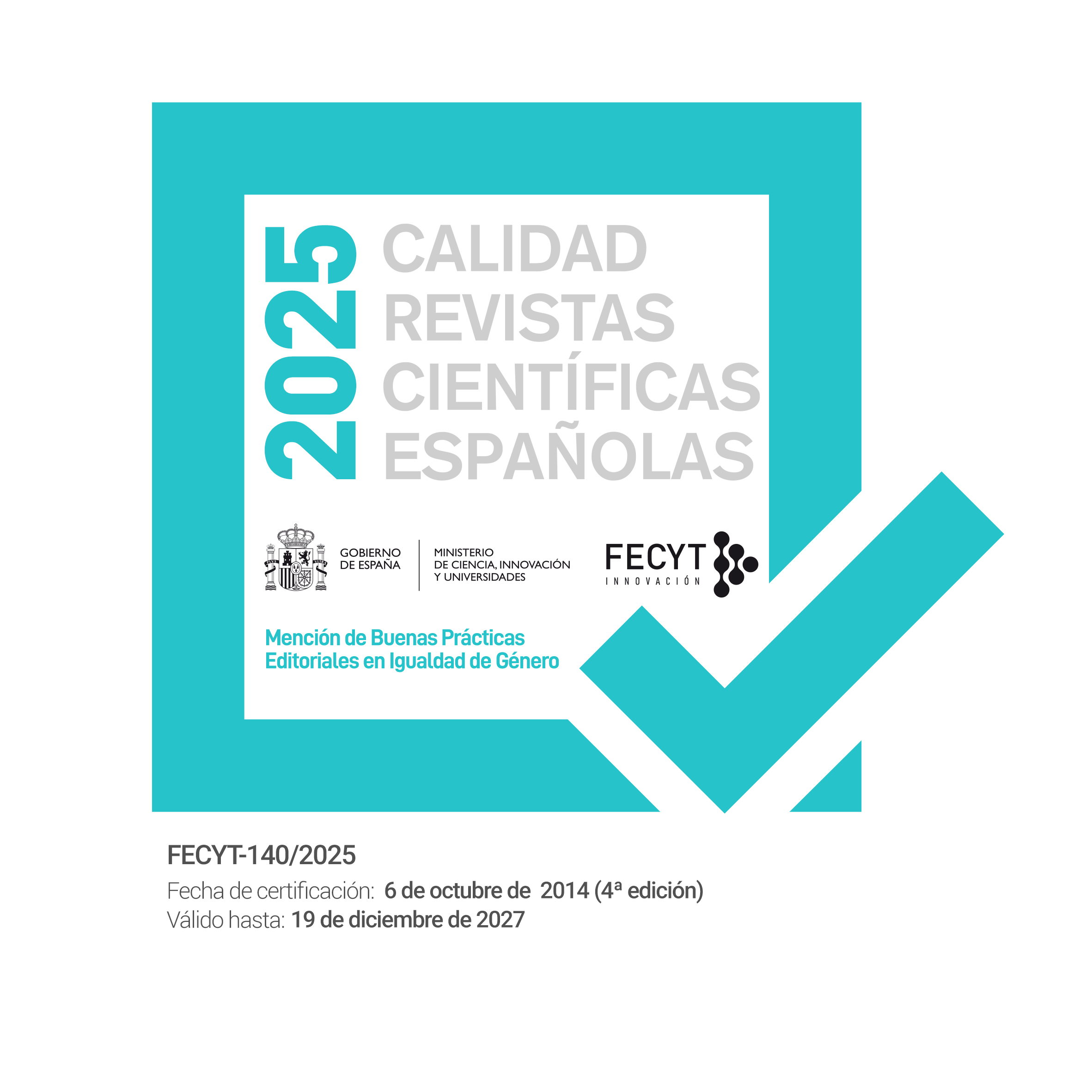ASSESSMENT OF ENTERPRISE POTENTIAL IN STUDENTS. A LONGITUDINAL STUDY
DOI:
https://doi.org/10.5944/educxx1.19032Keywords:
Entrepreneurship education, management education, training programme, compulsory education, teacher education.Abstract
The curricular implementation of entrepreneurship education in schoolshas been occurring gradually. Some programs represent this interest in
the promotion of entrepreneurial culture, such as EME, EJE and ÍCARO.
The success of this education depends on personal factors, in addition
to certain external factors, which make up the enterprise potential of a
subject. Our research aims to describe the effect on the enterprise potential of a project consisting of the three programs mentioned, as well as to understand the processes involved from the perspective of the teachers taking part. We conducted a study of ex post-facto cases via longitudinal descriptive research. The design is mixed and exploratory, the primary method being qualitative and the secondary quantitative. The results of the quantitative technique are used as an input to enhance the qualitative technique. The students and teachers have been selected through purposive sampling. Quantitatively, the instrument used was the ATE Test; and in the qualitative dimension, we have used in-depth interviews. To evaluate the effect of the project, we used an analysis of variance via repeated measures of a 2 x 2 factorial design. The collected data were analyzed using a mixed ANOVA through the statistical program SPPS version 20. To process the information obtained from the interviews, we performed a semiotic and narrative analysis. The effect of the programs on enterprise potential has been virtually non-existent. The participatory frequency has not had an appreciable effect. The analysis and discussion of the information obtained seems to indicate that the implementation of the programs that must be carried out will include relevant and successful personal factors relating to the development of the enterprise potential.
Downloads
References
Alemany, L., Marina, J. A. y Pérez Díaz-Pericles. J. M. (dir.) (2013). Aprender a emprender. Cómo educar el talento emprendedor. Barcelona: Fundación Príncipe de Girona/Aula Planeta.
Arnau, J. (1995). Diseños longitudinales aplicados a las ciencias sociales y del comportamiento. México D. F.: Noriega.
Athayde, R. (2009). Measuring enterprise potential in young people. Entrepreneurship Theory And Practice, 33(2), 481-500.
Athayde, R. (2012). The impact of enterprise education on attitudes to enterprise in young people: an evaluation study. Education + Training, 54(8/9), 709-726.
Balan, P. y Metcalfe, M. (2012). Identifying teaching methods that engage entrepreneurship Students. Education + Training, 54(5), 368-384.
Balluerka, N. y Vergara, A. I. (2002). Diseños de investigación experimental en psicología. Madrid: Prentice Hall.
Banister, P.; Burman, E.; Parker, I., Taylor, M. y Tindall, C. (2004). Métodos Cualitativos en Psicología: Una Guía Para la Investigación. Guadalajara: Universidad de Guadalajara.
Bericat, E. (1998). La integración de los métodos cuantitativo y cualitativo en la investigación social. Barcelona: Ariel.
Bernal, A. y Cárdenas, A. (2014). La formación de emprendedores en la escuela y su repercusión en el ámbito personal. Una investigación narrativa centrada en el Programa EME. Revista Española de Pedagogía, 257, 124-143.
Bisquerra, R. (2012). Metodología de la investigación educativa. Madrid: La Muralla.
Carey, C. & Matlay, H. (2011). Emergent issues in Enterprise education: the educator´s perspective. Industry and Higher Education, 25(6), 1-10.
Casanova, A. M. (2012). La evaluación de las competencias básicas. Madrid: La Muralla.
Chávez, E. G. (2012). EFL teachers’ professional development within the educational ELT context at UNAN-León, Nicaragua. Alcalá de Henares: Servicio de Publicaciones de la Universidad de Alcalá.
Chell, E. (2008). The Entrepreneurial Personality: A Social Construction. Londres: Routledge.
COM (2012). Un nuevo concepto de educación: invertir en las competencias para lograr mejores resultados socioeconómicos. Estrasburgo: Comisión de las Comunidades Europeas 2012/669. Recuperado de http://ec.europa.eu/education/news/rethinking/com669_es.pdf
Denzin, N. K. (1970). The Research Act. A Theoretical Introduction to sociological Methods. Chicago: Aldine.
Draycott, M. C. & Rae, D. (2011). Enterprise education in schools and the role of competency frameworks. International Journal of Entrepreneurial Behavior y Research, 17(2), 125-145.
Draycott, M. C., Rae, D. & Vause, K. (2011). The assessment of enterprise education in the secondary education sector. A new approach? Education+training, 53(8/9), 673-681.
EACEA (2012). Entrepreneurship Education at School in Europe. National Strategies, Curricula and Learning Outcomes. Bruselas: Eurydice. 92
Fayolle, A. & Gailly, B. (2008). Teaching models and learning processes entrepreneurship education. Journal of European Industrial Training, 32 (7), 569-93.
Fayolle, A., Gailly, B. & Lassas-Clerc, N. (2006). Assesing the impact of entrepreneurship education programmes: a new methodology. Journal of European Industrial, 30(9), 701-720.
Gewerc, A. y Montero, M. L. (2013). Culturas, formación y desarrollo profesional. La integración de las TIC en las instituciones educativas. Revista de Educación, 362, 323-347.
Gibbs, G. (2011). Concepts into practice: meeting the challenge of development of enterpreneurship educators around an innovative paradigm. International Journal of Enterpreneurial Behaviour and Research, 17(2), 146-165.
Gibbs, G. (2012). El análisis de datos cualitativos en investigación cualitativa. Madrid: Morata.
González, R. y Zúñiga, A. (2011). Método CEPCES para la evaluación del potencial emprendedor. Journal of Technology Management & Innovation, 6(1), 77-99.
Habiby, A. S., Deirdre, M. y Coyle, J. (2010). El emprendedor de alta intensidad. Harvard Business Review, 88(8), 76-80.
Harmeling, S. S. (2011). Re-storying an entrepreneurial identity: Education, experience and self-narrative. Education + Training, 53(8/9), 741-749.
Heyvaert, M., Hannes, K., Maes, B. & Onghena, P. (2013). Critical Appraisal of Mixed Methods Studies. Journal of Mixed Methods Research March, 7(4), 302-327.
Johannisson, B. (1991). University training for entrepreneurship: a Swedish approach. Entrepreneurship and Regional Development, 3(1), 67-82.
Johnson, D. W., Johnson, R. T. & Holubec, E. J. (1994). Cooperatiae learning in the Classroom. Virginia: ASCD.
Jones, B. & Iredale, N. (2010). Enterprise Education as pedagogy. Education + training, 51(1), 7-19.
Jones, C. & Matlay, H. (2011). Understanding the heterogeneity: of entrepreneurship education: going beyond Gartner. Education + Training, 53(8/9), 692-703.
Kvale, S. (2011). Las entrevistas de investigación cualitativa. Madrid: Morata.
León, O. G. y Montero, I. (2003). Métodos de investigación en Psicología y Educación. Madrid: McGraw-Hill.
Lieblich, A., Tuval-Mashiach, R. & Zilber, T. (1998). Narrative research. Reading analysis, and interpretation. Thousand Oaks, CA: Sage.
Liñán, F., Santos, F. J. & Fernández, J. (2011). The Influence of Perceptions on Potential Entrepreneurs. International Entrepreneurship and management Journal, 7(3), 373-390.
Louise-Jayne, E. & Muir, E. J. (2012). Evaluating enterprise education: why do it? Education + Training, 54(4), 278-290.
Lumpkin, G. T. & Dess, G. G. (1996). Clarifying the entrepreneurial orientation construct and linking it to performance. Academy of Management Review, 21(1), 135-172.
Maritz, A. & Brown, C. R. (2013). Illuminating the black box of entrepreneurship. Education + Traininig, 55(3), 234-252.
Matlay, H. (2006). Researching entrepreneurship and education, part 2: what is entrepreneurship education and does it matter? Education + Training, 48(5), 577-597.
Mayoh, J. & Onwuegbuzie, A. J. (2015). Toward a Conceptualization of Mixed Methods Phenomenological Research. Journal of Mixed Methods Research, 9(1), 91-107.
Ministerio de Industria, Turismo y Comercio (2010). Panel informativo n.º 27. Madrid: Dirección General de Política de la pequeña y mediana empresa.
Morgan, D. L. (1998). Practical strategies for combining qualitative and quantitative methods: Applications to health research. Qualitative Health researchs, 8(3), 362-376.
Nabi, G. y Liñán, F. M. (2011). Graduate entrepreneurship in developing countries: intentions, education and development. Education + Training, 53(5), 325-334.
Negro, A. (2012). Aprendizaje cooperativo en las aulas: fundamentos y recursos para su implantación. Madrid: Alianza Editorial.
Pardo, A., Garrido, J., Ruiz, M. A. y San Martín, R. (2007). La interacción entre factores en el análisis de varianza: errores de interpretación. Psicothema, 19(22), 343-349.
Pérez Juste, R. (2006). Evaluación de Programas Educativos. Madrid: La Muralla.
Pérez Serrano, G. (1994). Investigación cualitativa. Retos e interrogantes. II. Técnicas y análisis de datos. Madrid: La Muralla.
Pittaway, L. (2009). The role of inquirybased learning in entrepreneurship education. Industry and Higher Education, 23(3), 153-62.
Puig, J. M. y Martin, X. (2007). Competencia en autonomía e iniciativa personal. Madrid: Alianza Editorial.
Rae, D. y Woodier-Harris, N. (2012). International entrepreneurship education: Postgraduate business student experiences of entrepreneurship education. Education + Training, 54(8/9), 639-656.
Railsback, J. (2002). Project-based instruction: Creating excitement for learning. Portland, OR: Northwest Regional Educational Laboratory.
Roca, E. (2013). La evaluación diagnóstica de las competencias básicas. Madrid: Síntesis.
Ruiz, J. I. (2009). Metodología de la investigación cualitativa. Bilbao: Universidad de Deusto.
Ruskovaara, E. & Pihkala, T. (2013). Teachers implementing entrepreneurship education: classroom practices. Education + training, 55(2), 204-216.
Seikkula-Leino, J., Ruskovaara, E., Ikävalko, M., Mattila, J. & Rytkola, T. (2010). Promoting entrepreneurship education: the role of the teacher? Education + training, 52(2), 117-127.
Steenekamp, A. G., van der Merwe, S. P. & Athayde, R. (2011). An investigation into youth entrepreneurship in selected South African secondary schools: an exploratory study. Southern African Business Review, 15(3), 46-75.
Tójar, J. C. (2006). Investigación cualitativa. Comprender y actuar. Madrid: La Muralla.
Vesa, T. & Down, S. (2012). Measuring entrepreneurial orientation of university students. Education + Training, 54(8/9), 744-760.
Yin, R. K. (2009). Case Study Research: Design and Methods. Thousand Oaks, CA: Sage.
Downloads
How to Cite
Issue
Section
License
Educación XX1 is published under a Creative Commons Attribution-NonCommercial 4.0 (CC BY-NC 4.0)










